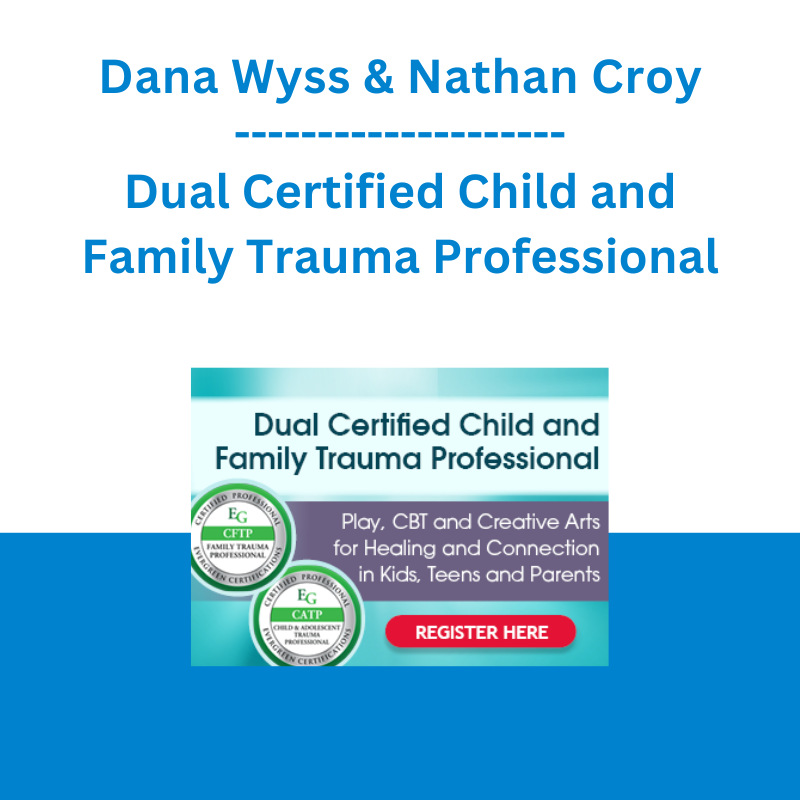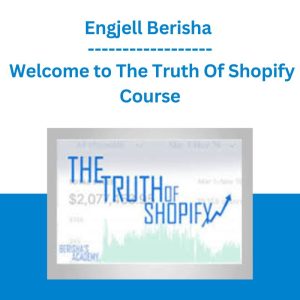*** Proof of Product ***
Exploring the Essential Features of “Dana Wyss & Nathan Croy – Dual Certified Child and Family Trauma Professional: Play, CBT, and Creative Arts for Healing and Connection in Kids, Teens, and Parents”
Child work IS family work.
Because trauma doesn’t just affect the kids and teens in your caseload. It tears apart families and erodes their connection and trust.
That’s why you need specialized trauma training on treating children AND working with their families.
And now with this self-paced online course, you can establish yourself as a trusted certified provider ready to deliver top-level trauma care to your young clients…
…and catalyze the healing power of love and connection in their families so they can thrive.
You’ll join childhood trauma expert Dr. Dana Wyss and Certified Family Trauma Professional Nathan Croy.
With detailed step-by-step instruction full of real-world examples, they’ll give you the skills and clinical tools you need to successfully treat young clients’ traumatic wounds and restore harmony and hope to their families.
They’ll share best practices and specific interventions so you can establish safety, stabilize families in crisis, create playful and engaging sessions, teach parents to navigate trauma-driven behaviors, and much more.
So don’t wait. Start your journey to becoming a trusted childhood trauma expert today.
What’s Inside
You get two FULL-length certification trainings — you’ll begin by expanding and refining your knowledge on treating kids and adolescents with trauma. Then, you’ll dive into content that will help you be effective in conjoint sessions or doing family therapy when trauma is present.
Certified Child & Adolescent Trauma Professional Training: Creative & Playful Paths to Treat Acute & Complex Trauma.
Learn how to work in creative, evidence-based ways with all types of trauma — from acute and developmental to complex — with kids and adolescents. This training gives you the crucial building blocks to make strong connections with your young clients and the foundation for successful family therapy and long-term healing.
Prepare for Trauma Work
- Creative ways to educate youth and families
- Collaborative assessment of client’s needs
- From Bowlby to today attachment styles
- Trauma’s impact on attachment and ability to heal
- Evolution of language and understanding
- Physiological, relational, spiritual, emotional symptoms and outcomes of trauma
Regulation and Co-Regulation — Modeling/Teaching/Experiencing
- Safely explore power differential
- Explore and expand the window of tolerance
- Arrow of comfort
- Stations of modulation – Create a modulation tool kit
Best Practices for Assessment
- Consideration for Referral and Diagnosis
- Evidenced-based assessment tools — can or cannot use
- Streamlined intake — ask the right questions
- ACE and developmental trauma
- Diagnosing with DSM-5-TR™
Creating and Assessing Safety — Interactive with Scope of Practice
- Create your own safe space activity
- Building routines in session — families, school, and milieu systems
- Identify safe people and relationships
Compare Evidence-Based/Informed Treatments for High-Level Trauma
- EMDR
- Neurosequential
- Brainspotting
- DBT
- ARC
- TF-CBT
- Expressive Arts Therapy
- Somatic Therapy
- Play Therapy
Expressive Arts and Treatment
- Non-verbal approaches
- Relaxation
- Writing and journaling
- Poetry
- Visual art
- Rhythmic movement
- Use of metaphor
Move from Surviving to Thriving
- Activity
- Case conceptualization — integration of trauma narrative — story, timeline, poem
- Closure group activity
- Sample questionnaires
- Risks and Limitations
Family Trauma Treatment Certification Training: Interventions for Hope & Change
Take your scope of practice that much further by learning how to treat families that have experienced trauma. You’ll see the transformation on a whole new level with the comprehensive skills in this training that move families forward from the past.
How Trauma is Created and Maintained in Families
- Neurological substrates and sources of trauma
- Trauma as a disruption of trust
- Personal innate resiliency
- Impacts on family culture
- Responses of the people around the traumatized person
- Maintenance of trauma effects (re-traumatization, dismissive of actual trauma, ignorance)
A Systemic Approach to Trauma Treatment
- Families as the source of healing for trauma
- Create secure connections and increase resiliency
- Build trust as it relates to anxiety, fear, and threat
- Bowenian Family Therapy, Emotionally
- Focused Family Therapy and other systemic models
- Research, risks and treatment limitations
Stabilize Families for Treatment with Safety Planning
- Risk Assessments
- Systemic Safety Planning
- How to customize the safety plan
- Managing physiological responses
- Integrating with treatment
Early Session Strategies to Enhance Family Engagement
- When it’s a bad idea to include the whole family
- Assessing for DV and other risks
- Use family sculpting to reveal family dynamics
- Working individually in order to work systemically
- Games and activities to:
- Assess a child’s self-esteem and worldview
- Increase open communication
- Identify themes to be explored in future sessions
Family System Self-Regulation: Coping Skills to Modulate Emotions
- Implementation
- How to notice warning signs early
- Using coping skills for calm
- Identifying primary emotions
The Keys to Making and Maintaining Progress
- Teach caregivers to depersonalize trauma
- Help caregivers better respond to trauma-driven behaviors
- Identifying reactions
- Scripts
- ARC
- Case studies
- Role-plays to ensure proper implementation
Solutions for Defenses, Deflections and Frustrations
- Preparing families for resistance to growth
- Tips for reframing the problem as the solution
- Effective ways to deal with deflection and defenses
- The difference between deflection, projection, and transference
- Ego defense mechanisms or personality disorder?
- FAIR intervention to mitigate frustration
- Three phases of family growth (Protect, Prepare, Participate)
Improve Communication, Set Healthy Boundaries and Rebuild Trust
- Practical tips for educating families on boundaries
- The House Metaphor for understanding boundaries
- Reinforcing boundaries after setting them
- Boundaries vs rules — the benefits of agreements vs. control
- Rebuilding trust — what works and what doesn’t
- Trust Equation — an online assessment
Facilitate Forgiveness, Build Empathy and Move Families Forward
- Addressing shame in family systems
- Overcome the impact of survivors’ guilt on families
- How family members can stop “shoulding” themselves
- The Forgiveness Triangle (Empathy, Grief, Meaning)
- Exercises to facilitate the forgiveness of self
BONUS!
Playful Parts: The Intersection of Play Therapy and Internal Family Systems
Carmen Jimenez-Pride, LCSW, LISW-CP, ERYT, RCYT, RPT-S
Join Carmen as she expertly pairs the therapeutic power of play with the non-pathologizing, flexible approach of IFS therapy. Through expert explanation and demonstration, Carmen will teach you how to integrate these two powerful therapy methods so you can help young clients:
- Release shame as they explore and make sense of their internal sensations and experiences
- Give voice to all their “parts,” none of which are bad or wrong
- Express and process painful emotions, urges, and memories without assigning blame or shame to them
- Unhook from distressing beliefs about themselves and their experiences
- Enhance social relationships, foster emotional wellness, and build on personal strengths
- Develop cognitive flexibility and reframe self-doubt
- And so much more!
Meet Your Expert Child & Family Therapy Speakers
Dana Wyss, PhD, LMFT, ATR-BC, is a board-certified art therapist, and marriage and family therapist, holds a doctorate in expressive therapies, and is the coauthor of The Invisible String Workbook. Her doctorate in expressive therapies has led her to create programs integrating art, music, poetry, dance, and animal-assisted therapy in the healing process for clients and the self-care of staff. For the last 25 years, Dr. Wyss has worked in psychiatric hospitals, group homes, and nonpublic school settings to manage crises, conduct training, coach staff, and support children and families. Dr. Wyss is a corporate clinical training specialist and clinical/art therapy supervisor at Stars Behavioral Health Group, a company specializing in the treatment of complex developmental trauma. She also owns a small private practice where she specializes in the use of art and play for all ages. Dr. Wyss is a national trainer and consultant with the Center for Trauma Training and national trainer to raise awareness of the commercial sexual exploitation of children. She uses her creativity for her own healing as well as to support others.
Nathan D. Croy, LCMFT, CFTP, is a clinically licensed marriage and family therapist with extensive experience working with families, teenagers, and children impacted by trauma, depression, anxiety, addiction, and abuse. Nathan has been designated a Clinical Fellow by the American Association for Marriage and Family Therapy (AAMFT) and is a Certified Family Trauma Professional (CFTP) through Evergreen Certifications. He is also trained in Trauma Systems Therapy, Parent Management Training, and EMDR. In addition to private practice, Nathan has extensive experience working in outpatient and inpatient settings including in foster care systems, a psychiatric hospital, and as a therapist at The University of Kansas Hospital. He earned his master’s in marriage and family therapy from Bethel Seminary.
Please see the full list of alternative group-buy courses available here: https://lunacourse.com/shop/










 Matan Feldman - The 13-Week Cash Flow Modeling - Wall Street Prep
Matan Feldman - The 13-Week Cash Flow Modeling - Wall Street Prep  Fred Haug - Virtual Wholesaling Simplified
Fred Haug - Virtual Wholesaling Simplified  Sovereign Man Confidential - Renunciation Video
Sovereign Man Confidential - Renunciation Video  Trade Like Mike - The TLM Playbook 2022
Trade Like Mike - The TLM Playbook 2022  The Daily Traders – Exclusive Trading Mentorship Group
The Daily Traders – Exclusive Trading Mentorship Group  Akil Stokes & Jason Graystone - TierOneTrading - Trading Edge 2019
Akil Stokes & Jason Graystone - TierOneTrading - Trading Edge 2019  Ads Collection Swipe Files - Claude Hopkins
Ads Collection Swipe Files - Claude Hopkins  SMB - Options Training
SMB - Options Training  George Fontanills & Tom Gentile - Optionetics 6 DVD Series Home Study Course (Digital Download)
George Fontanills & Tom Gentile - Optionetics 6 DVD Series Home Study Course (Digital Download)  Julie Stoian & Cathy Olson - Launch Gorgeous - Funnel Gorgeous Bundle
Julie Stoian & Cathy Olson - Launch Gorgeous - Funnel Gorgeous Bundle  Crypto Dan - The Crypto Investing Blueprint To Financial Freedom By 2025
Crypto Dan - The Crypto Investing Blueprint To Financial Freedom By 2025  Ryan Ford & Amos Rendao - Parkour 100 Series
Ryan Ford & Amos Rendao - Parkour 100 Series  Erik Banks - Alternative Risk Transfer
Erik Banks - Alternative Risk Transfer  Oliver Velez - Essential Strategy Of Trade For Life
Oliver Velez - Essential Strategy Of Trade For Life  Engjell Berisha - Welcome to The Truth Of Shopify Course
Engjell Berisha - Welcome to The Truth Of Shopify Course  Racing Workshop - Complete Online Package
Racing Workshop - Complete Online Package  Atlas API Training - API 570 Exam Prep Training Course
Atlas API Training - API 570 Exam Prep Training Course  Emanuele Bonanni - My Trading Way
Emanuele Bonanni - My Trading Way  Chris Capre - Advanced Price Action Ongoing Training & Webinars
Chris Capre - Advanced Price Action Ongoing Training & Webinars  Legendary Ads Vault - Claude Hopkins
Legendary Ads Vault - Claude Hopkins  Alphashark - The AlphaShark SV-Scalper
Alphashark - The AlphaShark SV-Scalper